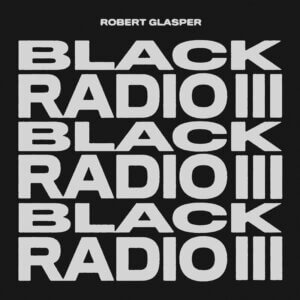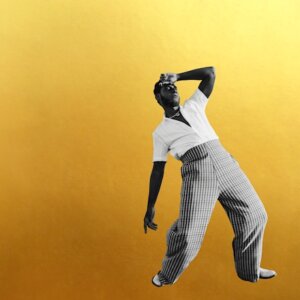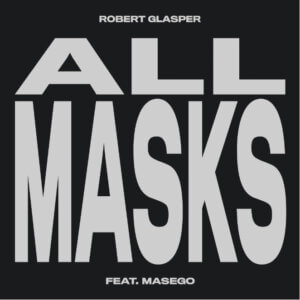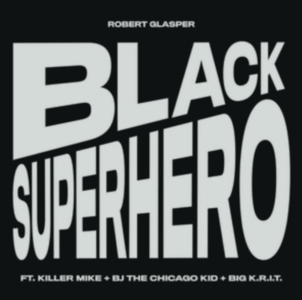
8
Black Radio III
Robert Glasper
Robert Glasper is something of an anti-DJ Khaled. While his Black Radio albums involve bringing together various prominent vocal talents to perform on his tracks, these collaborations never feel like cynical bids for streams. Glasper also doesn’t incessantly remind you of his presence, instead letting his keys do the talking. On Black Radio III, Glasper and his guests dive into themes as wide as love, heartbreak, and institutional racism with full conviction.
While the New School-educated Glasper could very easily command the spotlight, he instead uses his piano as a way to support his collaborators without distracting from them. And additional instrumentation takes things further. On opener “In Tune,” poet
Amir Sulaiman delivers a wounded indictment of the racism woven into America’s DNA while also celebrating the freedom music grants. “We lay blueprints at the Blue Note,” he says, on coincidentally, Glasper’s first Black Radio album not released on Blue Note
Records. The backing piano chords and strings sound strikingly like those of “Pyramid Song.” This isn’t a surprise, as Glasper has covered Radiohead before. Bass clarinet and trumpet help with the shift from despondent to triumphant without ever compromising the song’s inherent tension.
In a recent interview with Trevor Noah, Glasper talked about playing with the “masters” of various genres, which tend to lean towards R&B and hip-hop. What makes Black Radio III so satisfying is the space he gives his guests to explore. Standout “Why We
Speak,” featuring Esperanza Spalding and Q-Tip, recalls both the floating R&B of When I Get Home but also the playful art-pop of Stereolab. And like Laetitia Sadier, Spalding sounds great in French as well as English. H.E.R. conveys simultaneous enthrallment and resignation on “Better Than I Imagined,” and her outro vocalizations could be stretched out into a full-length new-age track.
What also sets Glasper apart is how he draws his songs out, sometimes minutes past their logical endpoints, giving them new dimensions. Shine” could have easily ended after D Smoke and cousin Tiffany Gouché finished their respective terse verses and
ebullient choruses, but Glasper rides things out with an extended outro. After crying out in hopes of saving a relationship, Arkansas singer Yebba epilogues “Over” with sultry coolness but also vulnerability. (“Still making peace with my innocence.”)
It doesn’t always work. The fun of a cover of Tears for Fears classic “Everybody Wants to Rule the World” – featuring Lalah Hathaway – is somewhat dampened by a Common feature that can’t quite find its focus. But then you hear the kick-drum thump and full-
bodied vocals from Jennifer Hudson on “Out of My Hands” and wonder when the extended house remix is coming.
Pacing tends to be more of an issue than length. “Heaven’s Here” is one of the shorter songs, at just under four minutes. But Ant Clemons’ voice is too close to that of Anderson .Paak and Frank Ocean to stand out. And sometimes the themes can feel too simplified. The message of “Everybody Love,” featuring Musiq Soulchild and Posdnuos, is boilerplate “come together.” “Forever,” featuring PJ Morton and India.Arie, works much better with its more specific pro-love message, as well as the unmissable chemistry of its vocalists.
But there’s not a single song on Black Radio III that suggests anything less than love for the process and exploration of themes, both from Glasper and his collaborators. Whether it’s Killer Mike, BJ the Chicago Kid and Big K.R.I.T. fighting for racial justice on “Black Superhero” or Gregory Porter and Ledisi reflecting on romantic strain on “It Don’t Matter,” the passion is always obvious. We can’t wait to tune in again.
Order Black Radio III by Robert Glasper HERE
Latest Reviews
Tracks
Related Albums
Related News
Advertisement
Looking for something new to listen to?
Sign up to our all-new newsletter for top-notch reviews, news, videos and playlists.











